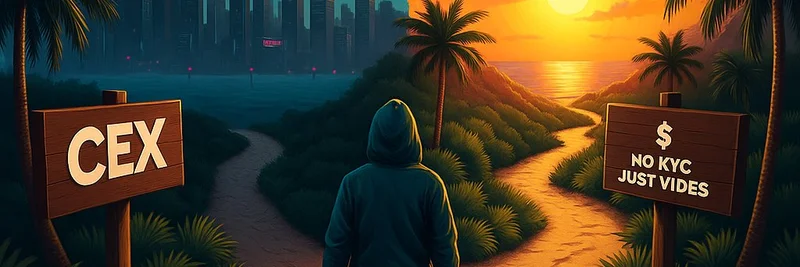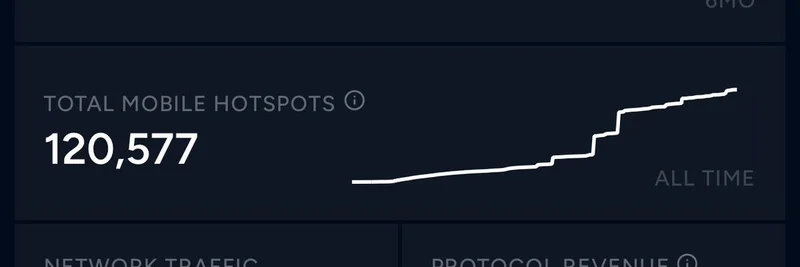Have you ever felt like the Wild West days of crypto are fading into the sunset? A recent tweet from tax expert @cryptaxpt paints a vivid picture—literally—of the fork in the road facing crypto users today. On one side, centralized exchanges (CEXs) with their strict Know Your Customer (KYC) rules, and on the other, the carefree "No KYC, Just Vibes" path that might soon come with some serious tax surprises.
2025년 8월 24일에 게시된 이 스레드는 EU에서 암호화폐를 거래하거나 EU 고객을 대상으로 하는 플랫폼을 사용하는 모든 사람에게 경종을 울립니다. 빠르게 변하는 분산 세계를 사랑하는 밈 토큰 애호가들에게는 특히 어떤 의미인지 살펴봅시다.
The Big Change: DAC8 and CARF Explained
Starting January 1, 2026, crypto exchanges—both in the EU and those catering to EU users—will have to spill the beans on your transactions directly to tax authorities. This comes from the EU's Directive on Administrative Cooperation 8 (DAC8), which classifies these platforms as Reporting Crypto-Asset Service Providers (RCASPs).
What exactly will they report? Pretty much everything:
- Your trades and swaps
- Transfers in and out of wallets
- Wallet movements and balances
- Transaction types, fair market values, and even your tax ID and residence
It's not just an EU thing either. The Crypto-Asset Reporting Framework (CARF), a global standard pushed by the OECD, aligns this with international efforts. Think of it as the tax world's version of FATCA for crypto—full transparency to crack down on evasion.
For meme token traders, this could hit hard. Many memes start on decentralized exchanges (DEXs) like Uniswap or Pump.fun, where anonymity has been part of the fun. But if you're an EU resident using a CEX like Binance or Coinbase to buy ETH before swapping for the latest dog-themed token, expect those details to land on your taxman's desk.
DeFi's Dilemma: From Decentralized to Regulated?
The thread quotes DeFi expert @DefiIgnas with a cheeky line: "Bye DeFi, hello On-Chain Finance." It's spot on. Decentralized Finance (DeFi) is evolving from pure peer-to-peer protocols into more structured "on-chain finance" setups. But here's the catch—even supposedly decentralized projects often have some central control, like a development team, foundation, or frontend interface.
According to the post:
- Fully decentralized protocols (just smart contracts, no human operators) can't file reports under DAC8. They have no one to hold accountable, so your info stays private.
- But if there's an identifiable entity—like a "Labs" or "Foundation" (think Ethereum Foundation)—regulators could label them as RCASPs and demand compliance.
This gray area is huge for meme tokens. Platforms like Solana's Raydium or Base's Aerodrome are DEXs, but they often have teams behind the curtains. If EU rules force these to report, it could chill the vibe for anonymous trading. Meme communities thrive on hype and quick flips; adding tax tracking might push more activity underground or to truly permissionless setups.
One reply in the thread asks a key question: Will exchanges only share data from 2026 onward, or dig into past years like 2023-2025? The original post doesn't specify, but based on similar regs, it's likely forward-looking. Still, if you're in the EU, now's the time to review your history—tools like Koinly or CoinTracker can help generate reports before the hammer drops.
Why This Matters for Meme Token Traders
At Meme Insider, we're all about decoding the chaos of meme coins. Tokens like DOGE, PEPE, or the next viral cat meme often explode on DEXs, where "vibes" rule over paperwork. But with DAC8, that freedom might shrink. Centralized gateways to DeFi could start demanding more info, making it tougher to stay under the radar.
Pros:
- Better compliance could legitimize crypto, attracting more institutional money and stabilizing prices.
- Transparent reporting might reduce scams, as bad actors get weeded out.
Cons:
- Privacy concerns—crypto was built on pseudonymity, remember?
- Potential for overreach, where even small-time meme flips trigger audits.
If you're trading memes, consider strategies like using hardware wallets for long-term holds or exploring privacy-focused chains like Monero (though they're not meme-heavy). And always, consult a tax pro—don't take this as advice!
Staying Ahead in the Meme Game
This tweet isn't just FUD; it's a roadmap for what's coming. As blockchain evolves, so do the rules. Follow experts like @cryptaxpt and @DefiIgnas for updates, and keep an eye on EU developments via sites like the European Commission's crypto page.
Here at Meme Insider, we'll keep tracking how regs like DAC8 ripple through the meme ecosystem. Whether it's taxing your SHIB gains or reporting your WIF swaps, knowledge is your best HODL. Got thoughts? Drop them in the comments below!



